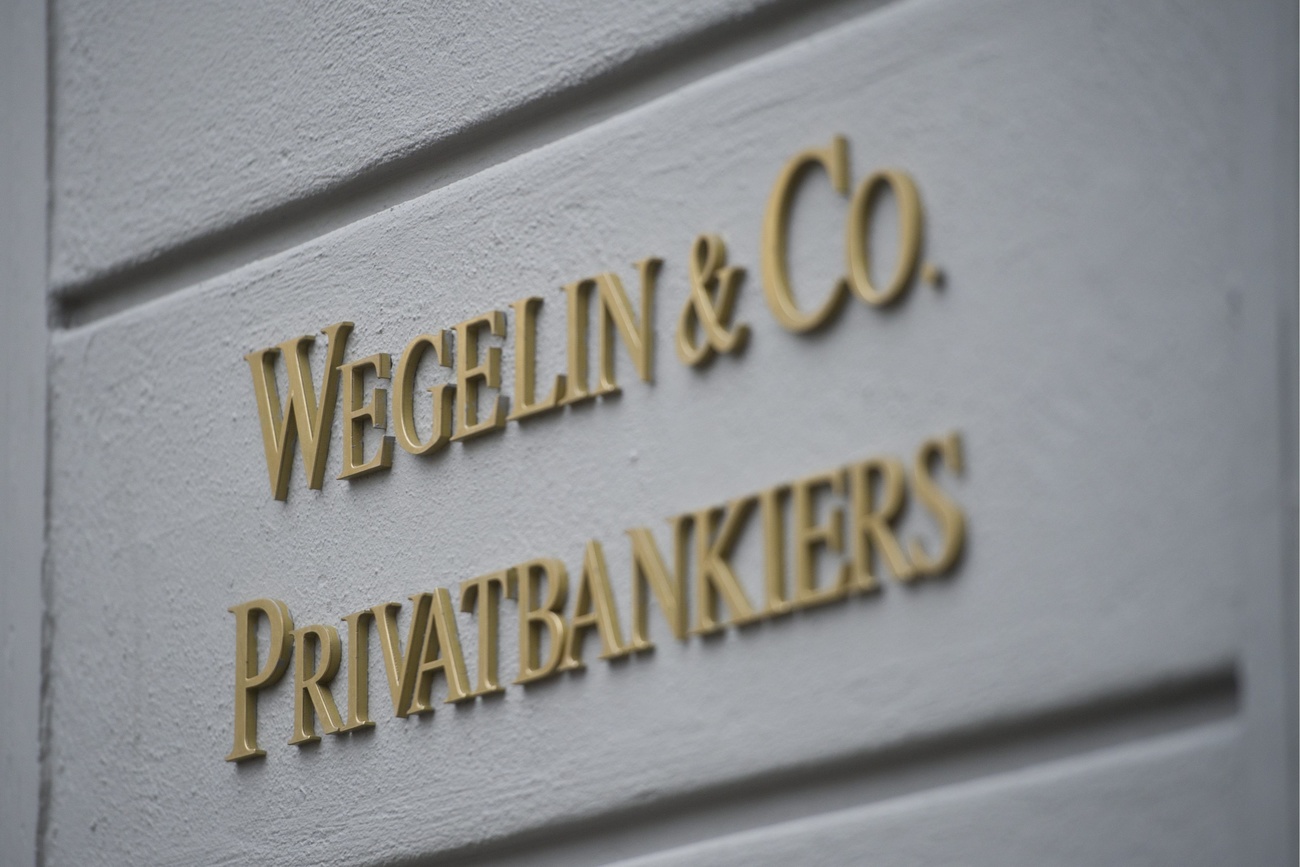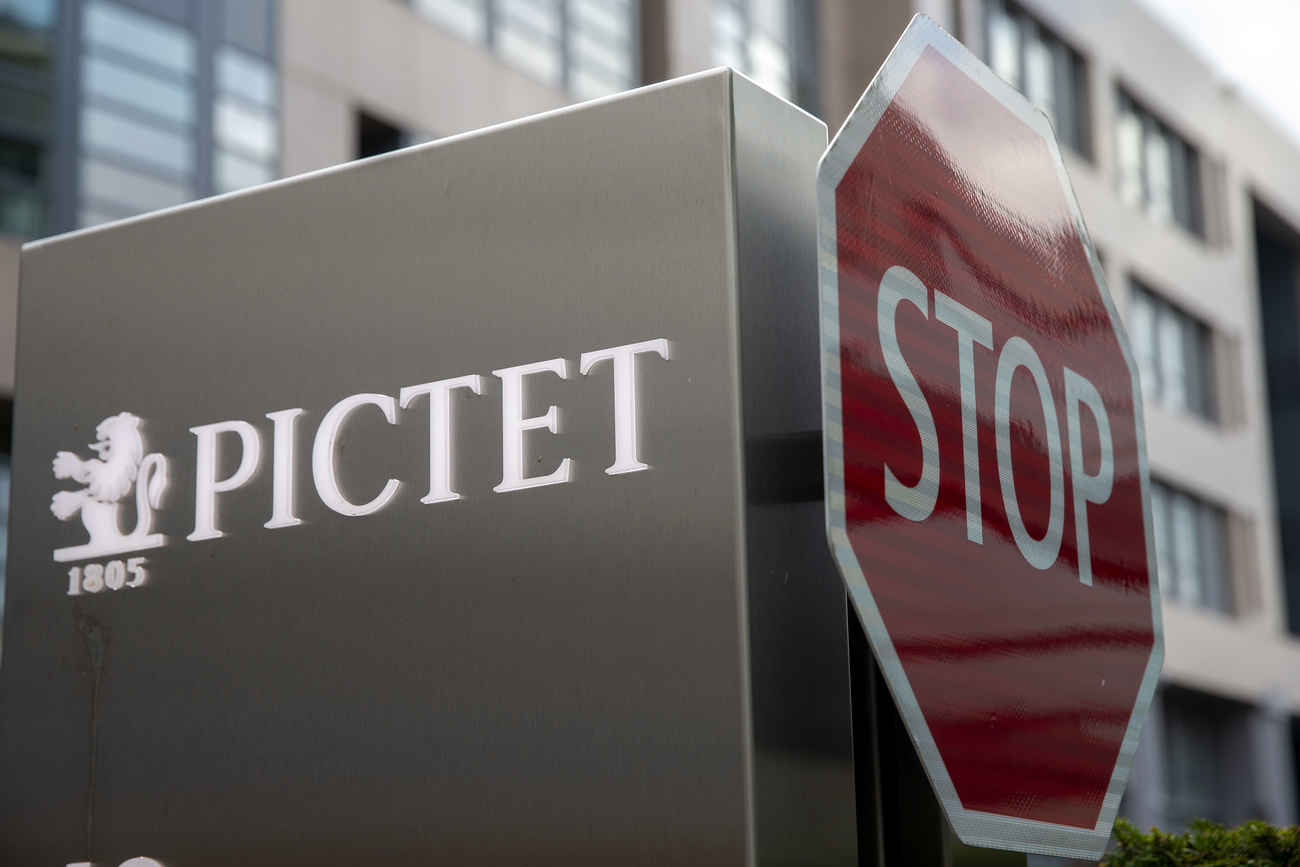The power the US wields over the Swiss financial centre

In January 2012 Konrad Hummler, partner of Swiss private bank Wegelin, had to sell the bank overnight because he was threatened with indictment in the United States. In hindsight, the story tells us so much more than the end of a private bank.
In the end, things had to happen very quickly: Wegelin’s management sold a large part of the bank to Raiffeisen in just three weeks in January 2012.
Do you want to read our weekly top stories? Subscribe here.
All that was left was the side of the business dealing with US customers – a “bad bank”, so to speak. The emergency sale was forced by pressure from the US – and remains an example of how much power the US exerts in the global financial sector.
The story doesn’t begin with Wegelin but with UBS, which came into the crosshairs of the US authorities after the financial and economic crisis of 2008.

More
How the US tax evasion crackdown impacted Swiss banking
The big Swiss bank was accused of aiding and abetting tax evasion. UBS helped American customers hide their money from the US tax authorities.
Clash of legal codes
At the time, this was a legal activity in Switzerland. Banking secrecy forbade a bank from releasing any customer data – not even to a state.
But that’s exactly what the US wanted: the names of several thousand suspected tax evaders.
+ Relive the moment Wegelin collapsed
This presented UBS with a dilemma, because under Swiss law it was not allowed to provide the names. But a US criminal charge – which was threatened if the bank refused to deliver the names – would have had disastrous consequences.
The reason is that US law allows counterparties and customers to terminate business relationships with a bank if it is sued.
For this reason, the Swiss Financial Market Supervisory Authority (FINMA) forced UBS to provide the names of around 250 customers to the US in 2009 – despite bank customer confidentiality. It was the first step towards abolishing Swiss banking secrecy.
+ When Switzerland waved goodbye to banking secrecy
Only then did the Wegelin bank come under pressure from the US authorities. That’s because Wegelin had taken over UBS’s American clients, knowing full well they probably only stashed their money in Switzerland to keep it hidden from the US tax authorities.
In Hummler’s own words
After UBS, Wegelin was also threatened with US criminal charges – and that spelled the end. When the preliminary notice of the US lawsuit landed in Wegelin’s mailbox in January 2012, the bank’s top management knew they had three weeks to save the bank.
In the US, accused companies are usually given a three-week period between the preliminary notification of an indictment and the actual indictment.
Around 150 people worked on the emergency sale of Wegelin during this time, says Hummler in the new GeldcastExternal link from SWI swissinfo.ch (in German).
And all of this under the strictest secrecy. A few days before the actual indictment in the US, Wegelin was relieved to find a buyer in the shape of the Raiffeisen banking group.
US political power
The only part of the Wegelin business to remain unsold was the US accounts, which were parcelled into separate entity – a “bad bank” – that later went under.
Today we know that the demise of Wegelin was a much more complex story than a company that failed. It shows how much power the United States wields in the Swiss financial centre. If the US authorities want something, the Swiss authorities can order the unveiling of bank customer data – as was demonstrated in the case of UBS.
US power can bring down Swiss banks even though they adhered to Swiss laws – as was shown with Wegelin.
But US pressure also led to a political rethink. Today, strict banking secrecy exists only domestically within Switzerland, but is no longer applied in relation to other countries.
Translated from German by mga/ts

In compliance with the JTI standards
More: SWI swissinfo.ch certified by the Journalism Trust Initiative










You can find an overview of ongoing debates with our journalists here . Please join us!
If you want to start a conversation about a topic raised in this article or want to report factual errors, email us at english@swissinfo.ch.